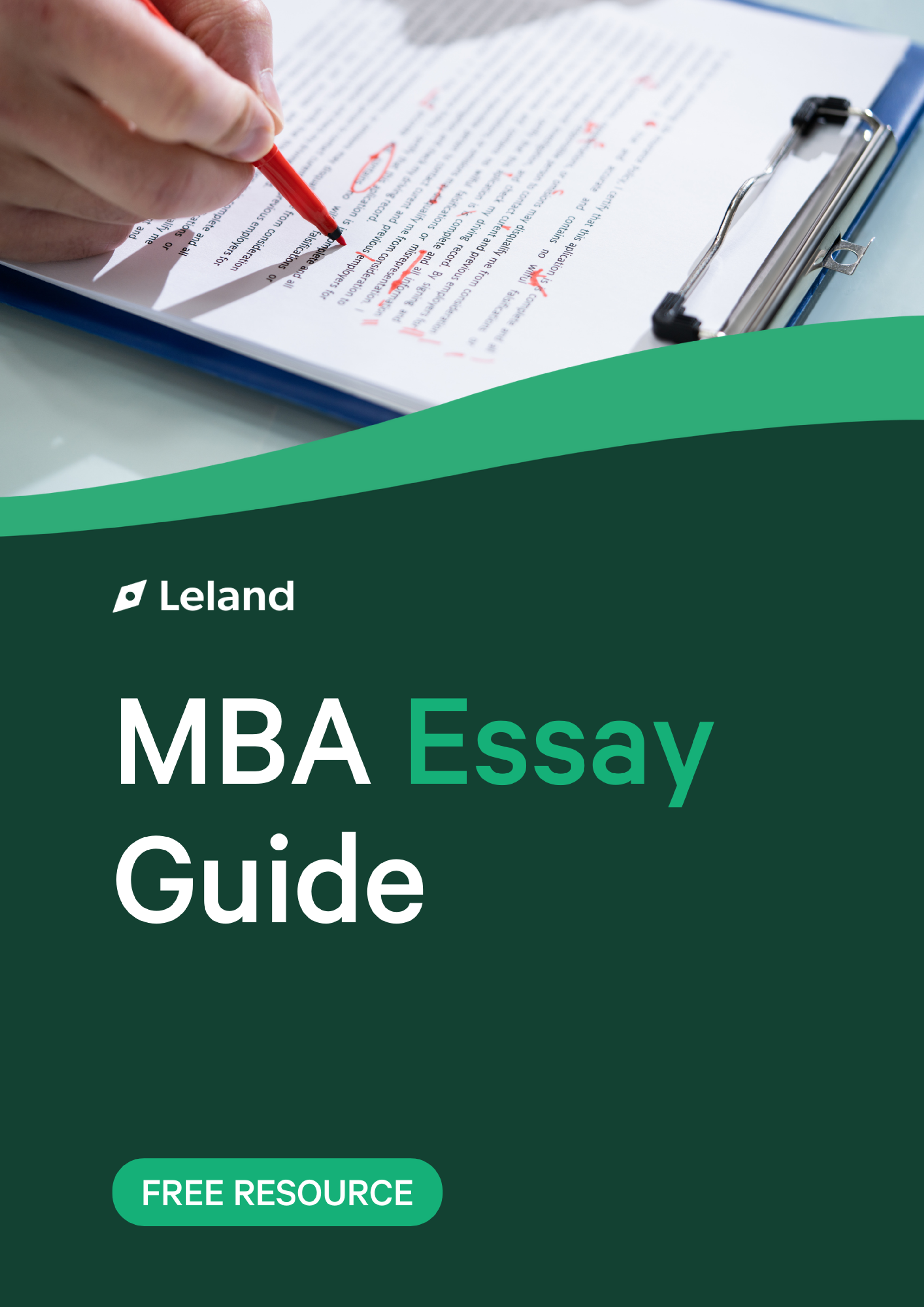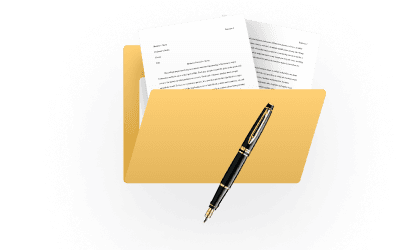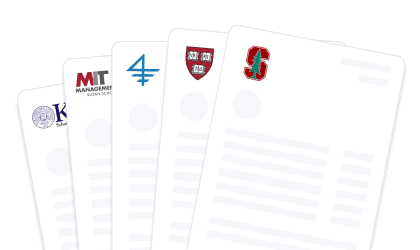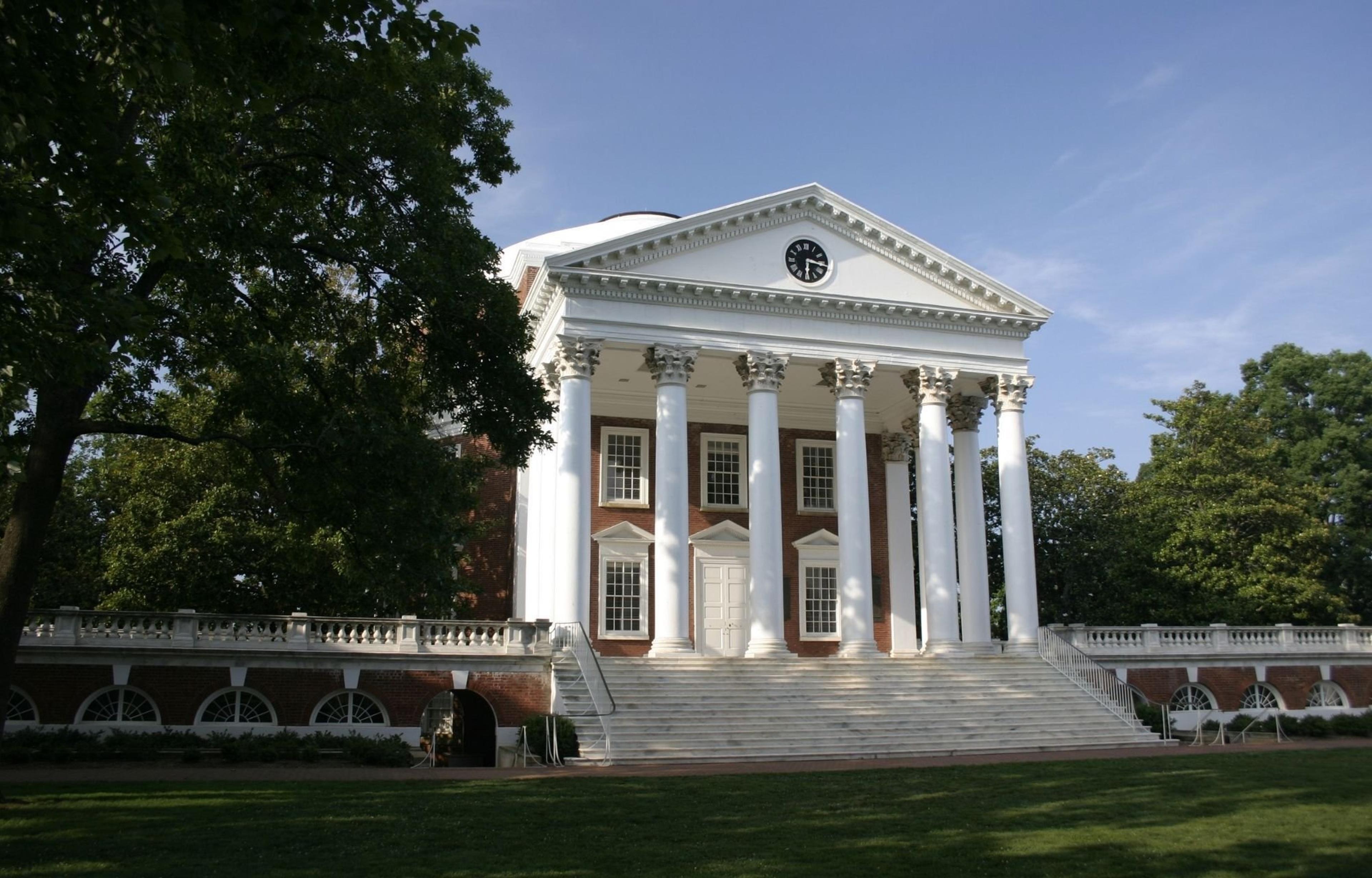How to Answer the "Why an MBA?" Essay Question
A common essay and interview question of top business schools, admissions committees want to know why you're choosing to get an MBA. Here is one expert coach's insight into crafting a compelling response.

By Cyrus H.
Harvard MBA & experienced coach
Posted June 13, 2025

Join a free event
Learn from top coaches and industry experts in live, interactive sessions you can join for free.
Table of Contents
There are a lot of things to think about when preparing your business school applications, but one stands out more than the rest: why do you want to get an MBA? It may seem like the question is obvious, but it’s often neglected and it’s important to have a cohesive answer before starting to put together your application.
Why It’s Important to Know Your Motivations for Business School
You may be wondering why you need to have an answer to this. Isn’t it sufficient that you’re motivated enough to apply? The answer is no, it’s not. Admissions committees want to admit students who really want to be there and will contribute to the program. Business school is a huge investment–both in terms of money and time–so you need to ensure that it makes sense in your long-term goals.
The word counts for application essays are pretty limited and understanding why you want an MBA will help you make the most of every letter. You’ll have an easier time sharing relevant past experiences, learnings, and stories that all tie into your future goals.
Also, thinking about “Why an MBA?” will help you understand a lot of your previous decisions in context, like why you picked the jobs you did, where you see yourself in five years, and what values are important to you.
It’s easier to be more confident in your decisions, and convey that confidence to the AdComs, if you know why you’re pursuing business school in general and the particular program specifically. You’ll have an easier time telling a compelling story and conveying a unique candidacy.

The Ultimate MBA Essay Guide
Download our free guide on the MBA essays for school-specific deep-dives and examples
How to Start Answering This Question for Yourself
At the end of the day, getting to know your motivations for pursuing an MBA is an exercise in getting to know yourself. You can start from either the past or the future, whichever you find the most helpful.
From the Past
First, ask yourself why you made the choices you have so far. Write out some of the most impactful decisions in your life and what they show about your values and aspirations. Think about common themes and patterns that connect the different points in your work experience and educational journey thus far. Don’t be afraid to go all the way back to childhood; this should not be a 15-minute exercise, but rather a days-long process.
From the Future
Picture yourself at age 80 in a rocking chair contemplating your life. What are the most precious memories and achievements that you would want to share with your grandkids? What will you reminisce about the most? What would make you think that you’ve made the most of your time on Earth? Is it a financial, social, or political goal? There is no wrong answer, as long as it remains true to who you are.
If you’re not certain, it’s okay. You don’t need to have a completely solidified twenty-year plan; simply give the AdCom an idea. It’s more important that you show initiative and ambition than a step-by-step roadmap of your career path.
Whatever you choose to write about, make sure that you are being vulnerable. Personal elements help the reader get to know you and your story. The essays are the one part of the application that is completely within your control and portray a human, rather than a list of accomplishments.
Almost everyone applying to an M7 degree program will have a stellar resume and it will be a lot more difficult to stand out there than in your essays. Remember that your essay may be the fiftieth one that the admissions committee member is reading that day. How can you make yours remain interesting and stand out, even when the reader is tired and at the end of a long day? Dig deep, and spend a lot of time reflecting on your story.
Other Tips
Be comfortable with knowing that your “why” is not set in stone and can change. In fact, it will very likely evolve entirely throughout your MBA program and after graduation. It doesn’t need to be grandiose, but rather what uniquely motivates you.
My grandma used to say, “I don’t care that much what path you pursue; but, whatever you do, be passionate about it and try to excel.” This advice applies perfectly to your business school applications.
Don’t seek pity or sympathy and don’t try to come off as the smartest or most accomplished applicant. Neither of these tracks is likely to translate into a compelling application. Stay true to yourself and write from the heart, rather than focusing on what you think the AdCom wants to hear.
Understanding why you want to get a business graduate degree is the first step toward submitting a cohesive application, and the importance of spending time on reflection is not to be underestimated.
Get Expert Help on Your MBA Essats
If you’d like personalized guidance on any part of the MBA application process, I’d love to work with you on Leland. I’ve been coaching for ten years and am passionate about helping others become the best versions of themselves. Head to my profile and book a free intro call to get started.

Written by Cyrus
5.0
(7)
About me: I am French-British and recently got my MBA from Harvard Business School. Previously, I lived between France and Britain for most of my life. I graduated in aeronautical engineering from Imperial College London in 2017 and am passionate about flight as a hobby; I am looking to pass my Private Pilot's License soon – hopeful or wishful thinking maybe? I am also a keen pianist and have been playing for a number of years and am looking to join a jazz band for weekends. Sports-wise, I am orientated towards tennis, golf and squash, and learning how to surf. Also quite a wine and food enthusiast (as any stereotypical Frenchman perhaps!). Career-wise, I worked at Salesforce from 2017 to 2020, primarily as a Solutions Engineer on some of the company's most strategic sales processes. I developed a strong passion for the startup ecosystem, paticularly for enterprise products, and interned at a VC firm, prior to getting my MBA. My experience: I have been coaching and tutoring for the past 10 years: I started with Maths/Physics, then French/English, then GMAT and MBA admissions. I really enjoy coaching others, helping people develop into the best version of themselves and unlocking new opportunities together. Most importantly, I coach on matters that I myself have had to work hard through in order to achieve what I wanted; so I will bring all empathy and pragmatism possible in my coaching. My approach: It starts by getting to know you (the student) as a person. What drives you? What matters to you? Who do you want to become? Why do you get up in the morning? What do you do for fun? This allows me to understand your personality, character, and approach to your life. I can then use this information to motivate you, to better adapt my explanations (I often use metaphors so you understand the concept more visually), and for us to build a partnership for long-term success. Together, we build a plan of action as a team, which requires both my overview, foresight and planning, and your focus and will. With a clear plan, with clear goals that are adapted to you, I prepare sessions in advance, anticipating areas you might need more help with, and adapting the pace and focus of each session as we go through the content together.
Cyrus has helped clients get into organizations like:
Browse hundreds of expert coaches
Leland coaches have helped thousands of people achieve their goals. A dedicated mentor can make all the difference.

























